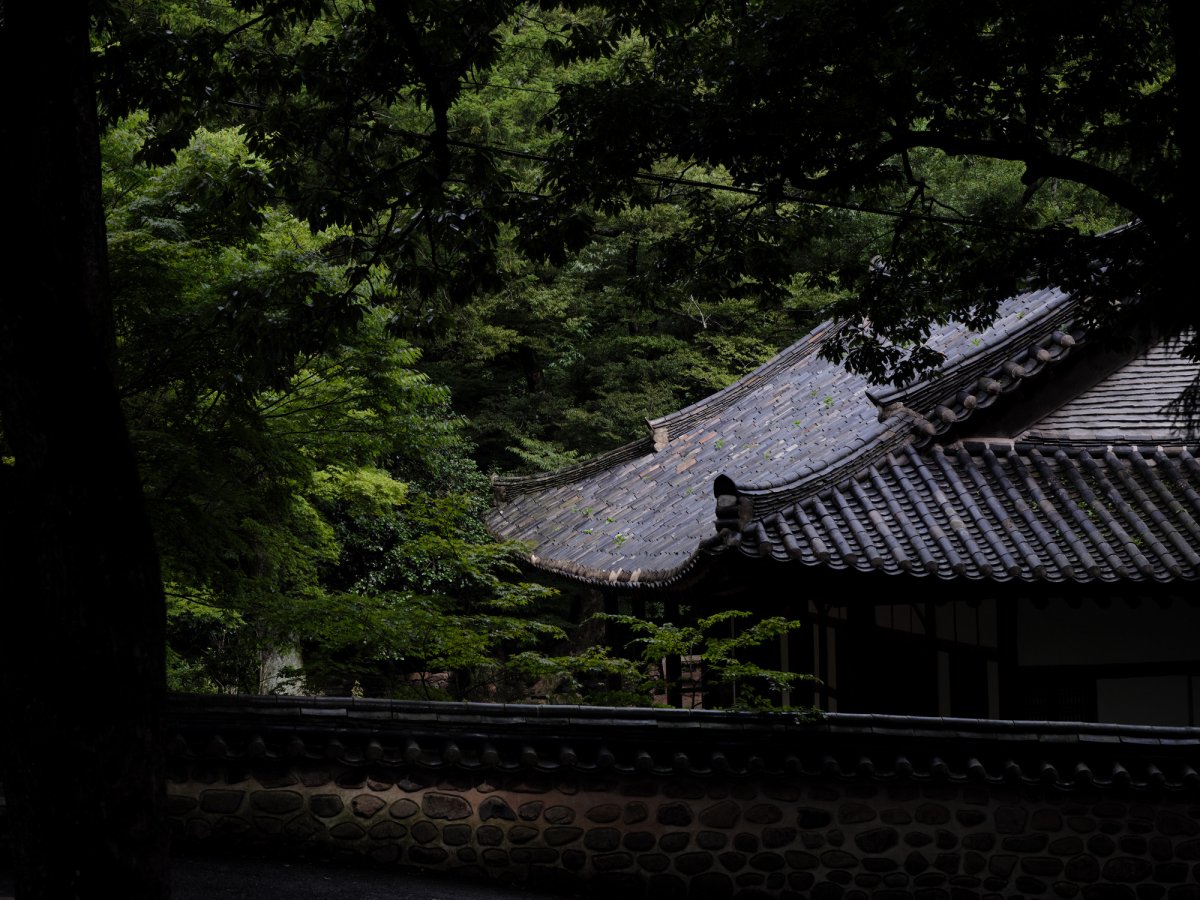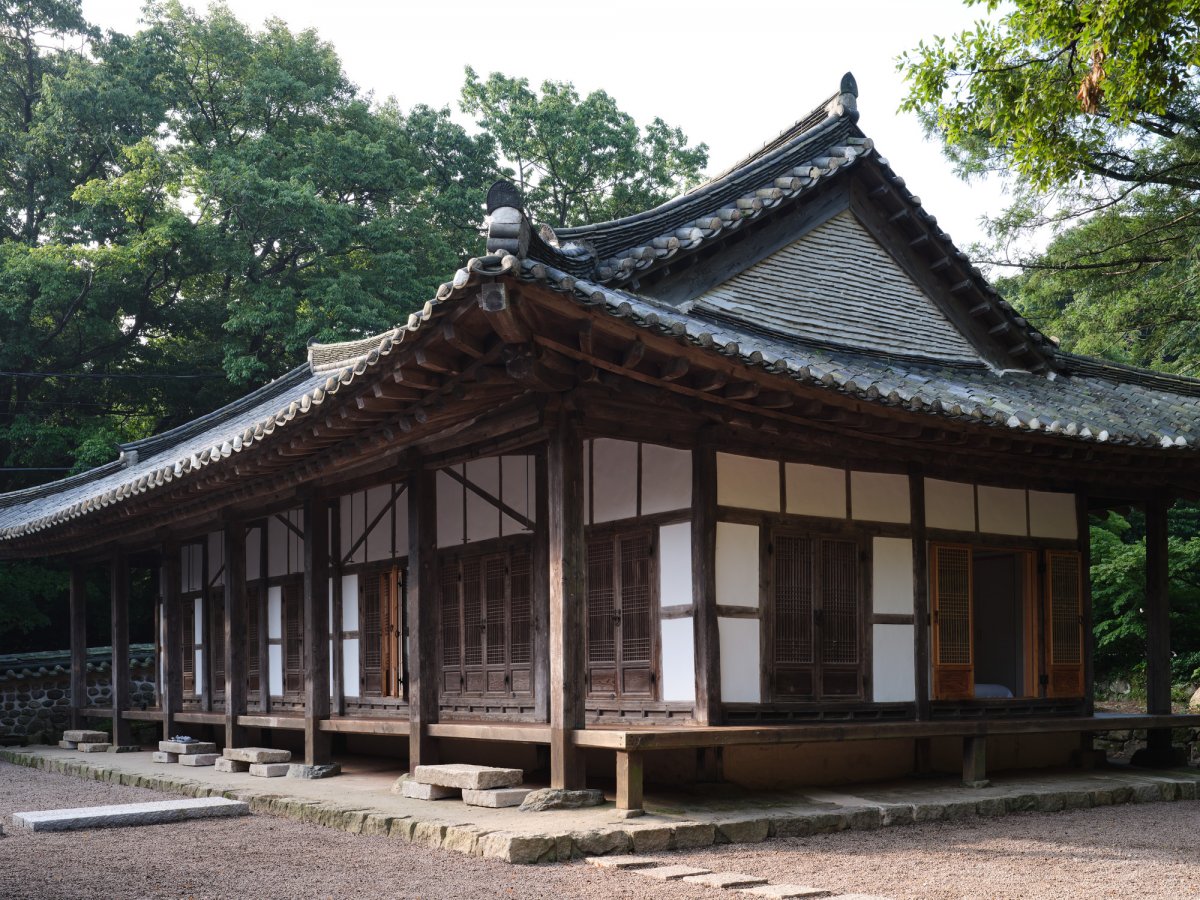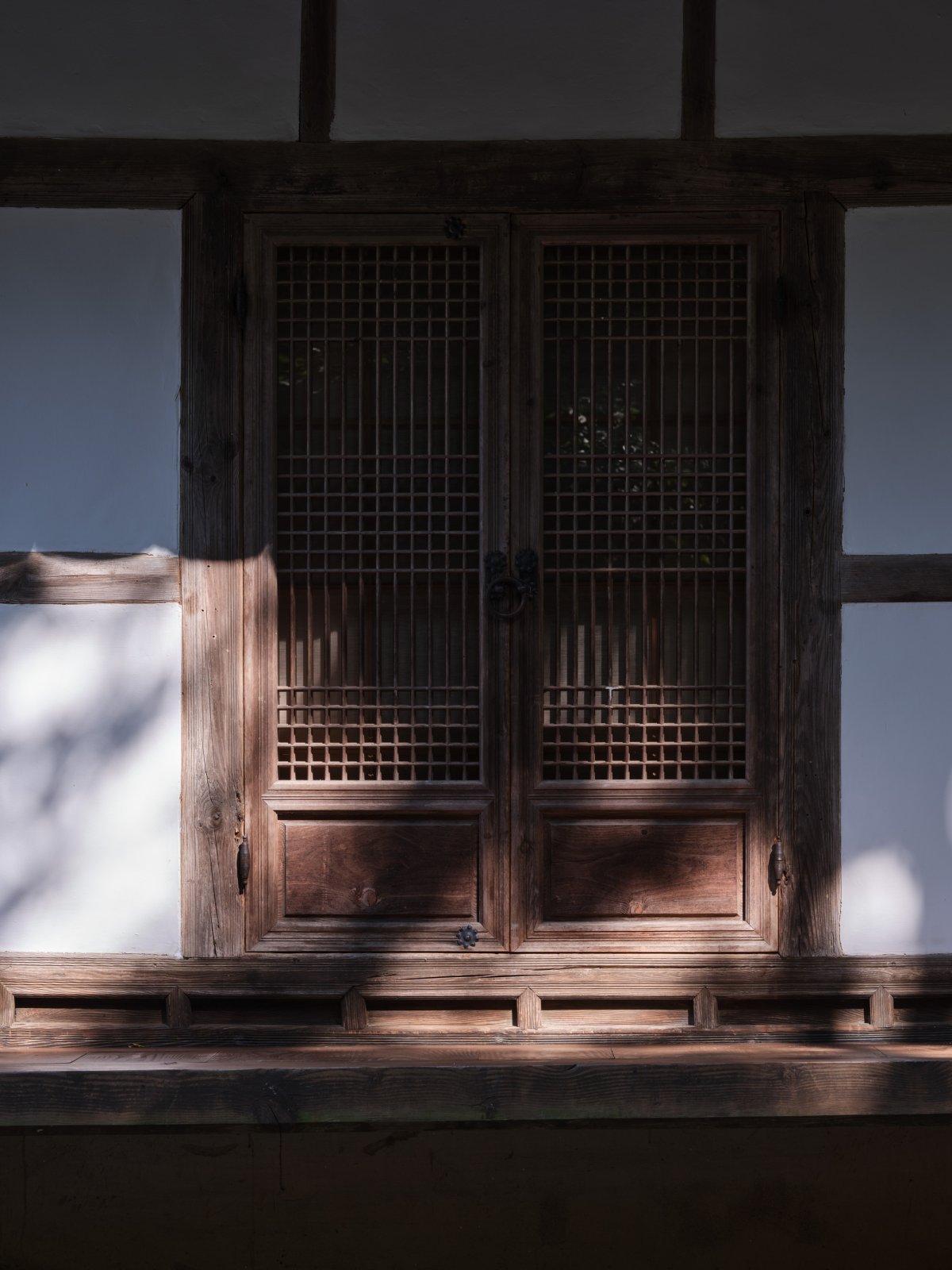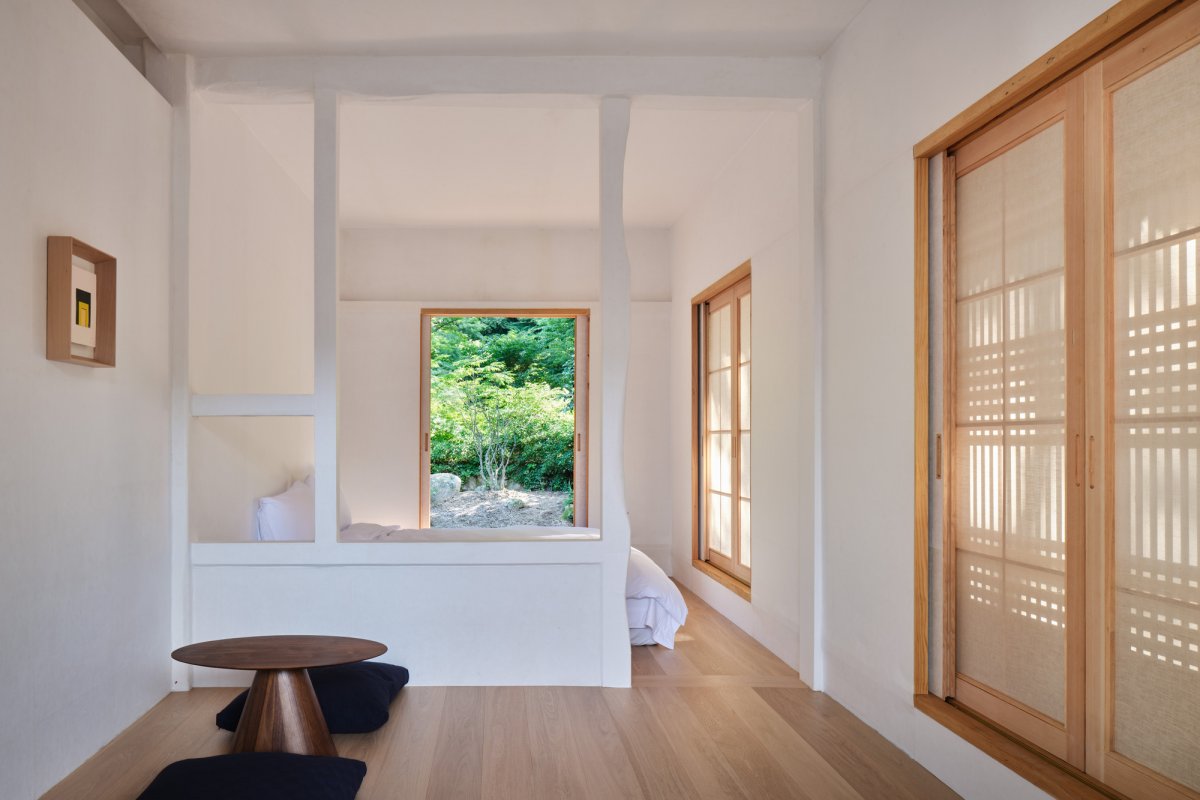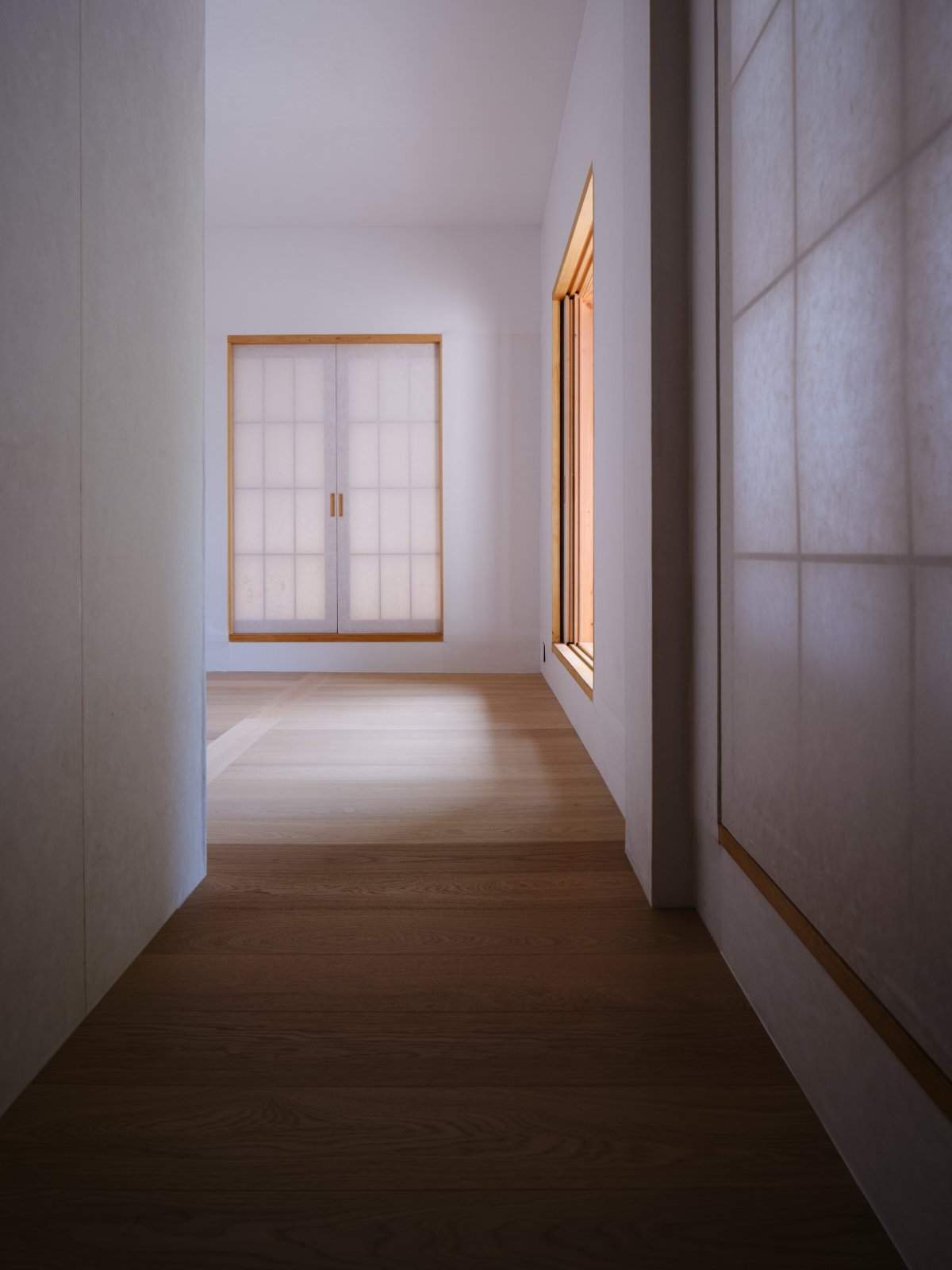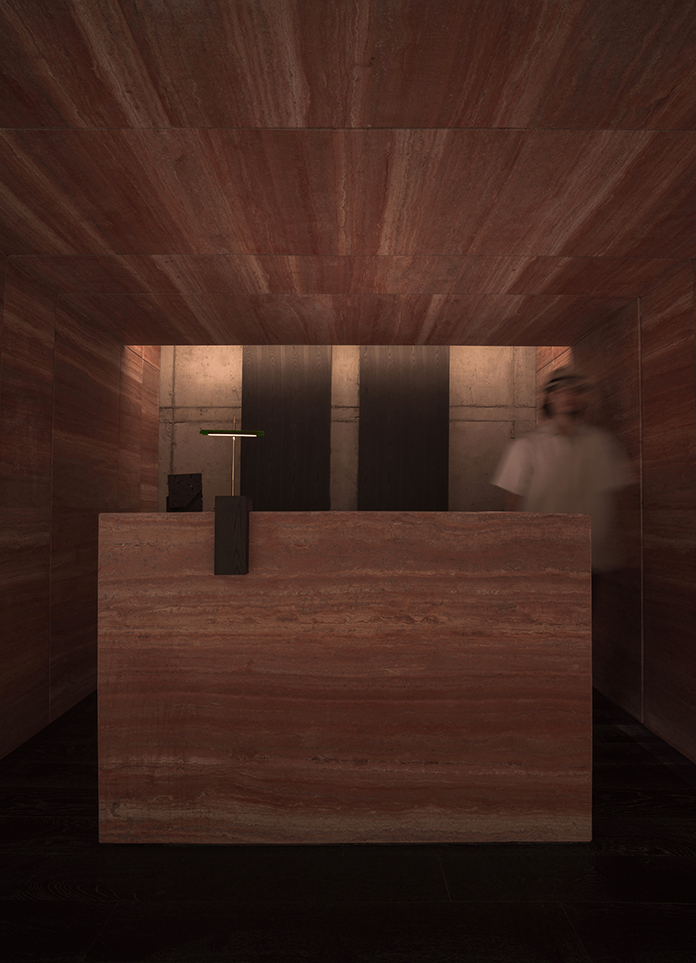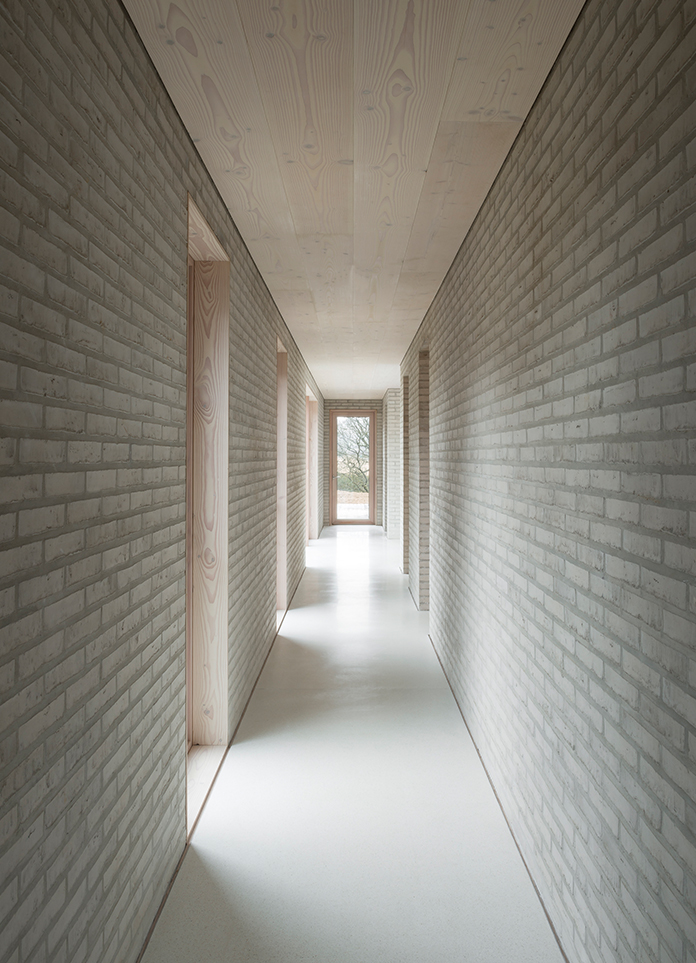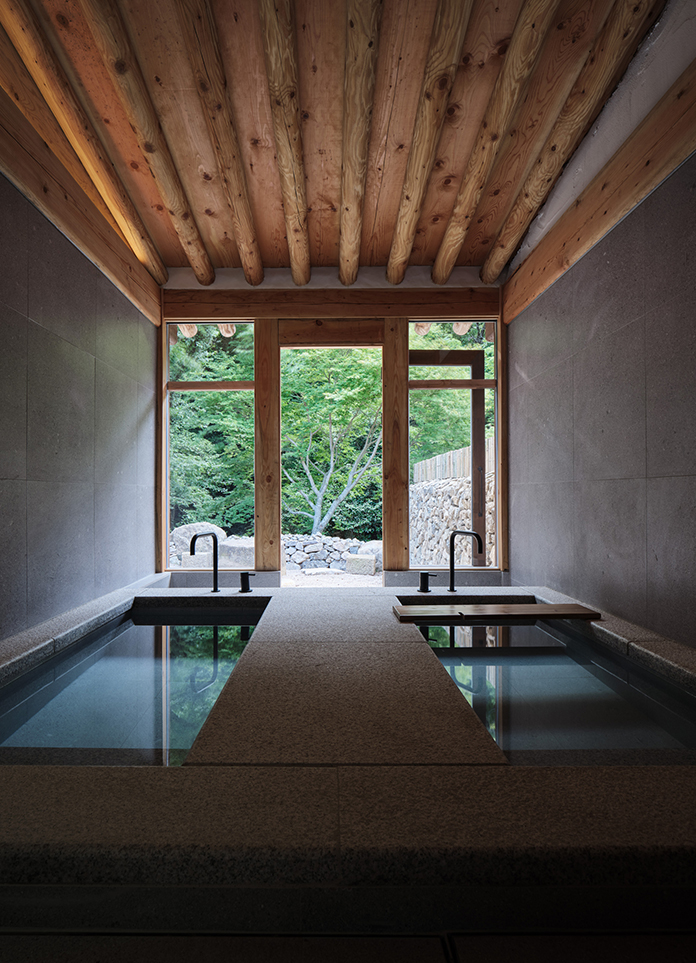
South Korea's first modern Hotel, the Yusun-Gwan Hotel, is located near the UNESCO World Heritage site Daeheungsa. Originally a lodging temple for traveling Buddhist monks and devotees, it began accepting ordinary tourists as clients in the late 1960s.
Prior to Chakchak Studio's renovation, the hotel's century-old buildings were gradually deformed due to haphazard renovation, which deprived them of their original state. Therefore, the transformation of these buildings, which are still in use, is not so much a restoration of "form" as a restoration of "original appearance", keeping the original form of the building as much as possible.
As for the interior space, all walls and ceilings are made of Hanji or traditional Korean paper, creating comfortable Spaces. For extra warmth and insulation, inside Windows covered in Korean paper have been installed on both sides, which double as curtains to control light. Between the outer and inner Windows are insect-resistant screens made of a traditional hemp fabric called Sambe. Light flows through the Hanji and Sambe that surround each room, filling the interior Spaces with a palpable atmosphere of tranquility.
Externally, the artificial garden in the courtyard was removed to create the maximum space, making the surrounding mountains, gullies, ancient trees, rocks and other natural elements the focus of the viewing pavilion. The paving stones that covered the courtyard were also replaced with eroded granite, similar to a soil material. In addition, loose stone fences were stacked around the site to define the boundaries of this historic hotel, and the walls were designed to visually blur the boundary between the surrounding landscape and the site.
The building previously used as a public shower facility was converted into a cafe, the spa was relocated to a nearby canyon to help visitors experience the natural environment in the most personal way, and the vacant lot of the former public shower room was transformed into a garden space for the cafe. More than 100 years old, Yusun-gwan is now an important cultural heritage site in the region. The hotel's revamped 800 square metre courtyard and new cafe, combined with existing visitor accommodation features, are expected to attract local cultural events and visitors, bringing future value to the area.
- Interiors: Chakchak Studio
- Photos: Kim Donggyu
- Words: Gina
